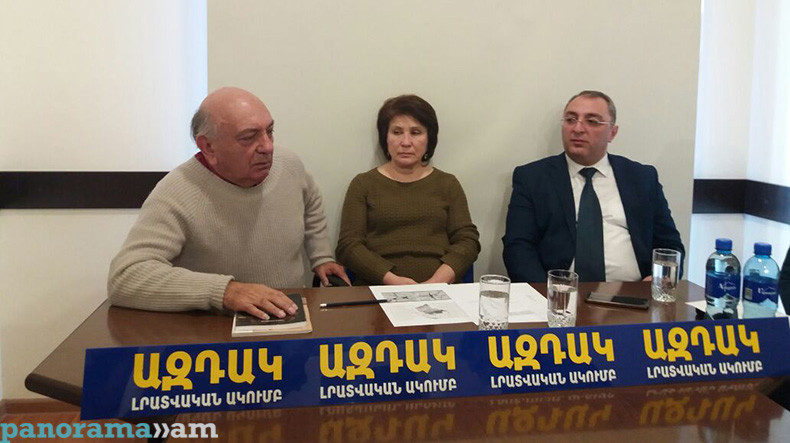
Armen Marukyan: Sumgait pogroms marked the start of Azerbaijan’s genocidal policy
The Sumgait pogroms marked only the beginning of the genocidal policy pursued by the Azerbaijani authorities, Candidate of History, Associate Professor Armen Marukyan told a news conference on Monday.
According to Mr Marukyan, Head of the Department of Armenian Cause and Armenian Genocide of the History Institute of Armenia’s National Academy of Sciences, the continuation of that policy was the Baku massacres, the case of axing to death Armenian officer Gurgen Margaryan and the 2016 April atrocities.
“It was a clear-cut policy of genocide. If we combine the Sumgait events and the materials of criminal cases, that were qualified as ‘murders committed out of hooliganism motives’, which was itself absurd, [we can state that] those cases needed to be considered together, whereas they were split into many small cases,” he said.
In Armen Marukyan’s words, when comparing them with the provision of the UN Convention on the Prevention and Punishment of the Crime of Genocide, we can state the Armenian pogroms perpetrated by Azerbaijan were genocide – there is no other way but to describe the killings, torture, the creation of inhuman conditions aimed at a total of partial annihilation of an ethnic or a religious groups as genocide.
“We are dealing with an asymmetric phenomenon when Azerbaijan does not miss a change to speak about the Khojaly events. I think we have made a gross mistake not to speak about the genocide of the Armenians in Azerbaijan,” he stressed, pointing to the failure to raise the issue of the Azerbaijani Armenian refugees as another serious mistake.
Writer, publicist Bakur Karapetyan, who visited Sumgait on March 27, exactly one month after the pogroms in Sumgait, collected documentary materials, talked to those Armenians who survived the massacres and fled to Armenia or other countries, noted that he shot a film with four installations and published a book on the basis of the collected materials.
He also cited the story told by an Azerbaijan prison patron named Hajiyev Latif ogli, when he was told while being kept in Shushi prison for a month in 1990. The patron, who had taken part in the Baku massacres, told him how they had burnt alive an Armenian family of four by locking them up in a closet. Later it was revealed that Hajiyev Latif ogli had been a convict to be released from Azerbaijani prison before the Baku pogroms.
“This is how the Azerbaijani authorities acted,” he added.
Related news
- Sumgait and Baku pogroms still need proper assessment - Speaker of National Assembly
- Neither political, nor legal assessment given to Sumgait massacres - Larisa Alaverdyan
- The Sumgait pogrom still requires much study
- Ambassador of Armenia to Spain: After Sumgait pogroms Azerbaijan established tradition of glorifying people for murdering Armenians
- Romanian media reports: Pogroms of Armenians in Sumgait were embodiment of Azerbaijani leadership's policy of xenophobia and ethnic cleansing
- Commemorative event dedicated to Sumgait, Baku and Kirovabad pogroms held in Tbilisi
Newsfeed
Videos






























